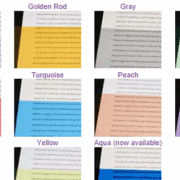6 Helpful Ways to Improve Your Child’s Critical Thinking Skills!
Six types of brain-building questions for children of any age.
Children are naturally inquisitive. If you’ve ever spent time with a 5-year-old, you were probably asked at least two questions in the course of a few minutes—and if you were lucky, you managed to get through the experience without too much embarrassment!
When kids ask questions they contribute positively to their learning experiences. Did you know that when you ask your children questions, you are also contributing positively to their education?
Answers to questions you ask your child require one of six different levels of critical thinking. So, when your child answers a question, his or her critical thinking skills get a workout. According to a model known as Bloom’s taxonomy, there are three domains of learning: cognitive (thinking), affective (emotional), and psychomotor (perceptions and movement).
This article focuses on the cognitive domain, which is subdivided into six areas, listed on the right. They range from the lowest level of thinking, simple recall, to the highest level, evaluating information. You will learn about the types of questions associated with each level of cognitive thinking. These questions can be adapted for any age and can be asked in a variety of situations.
As you continue reading, see if you can remember asking your child questions similar to the examples. Notice if you come across a new approach to asking your child questions, and be prepared to make some of your own!
The six cognitive levels. Watch for key words in bold
1) Knowledge:
This is the most basic level of thinking. By answering these questions, your child exhibits memory of previously learned material by recalling facts, terms, basic concepts, and answers.
Sample questions you can ask:
- Do you remember what we had for lunch yesterday?
- What is 5 + 5?
- Can you name the seven continents?
- Which character in the book got the puppy?
2) Comprehension:
Your child will demonstrate understanding of facts and ideas by organizing, comparing, translating, interpreting, giving descriptions, and stating main ideas.
Sample questions you can ask:
- What are some differences between the horse and the cow we saw today?
- Can you explain why we leave a tip when we eat at a restaurant?
- What facts or ideas show that the main character is scared?
- How would you summarize the chapter we just read?
3) Application:
Level three involves having your child solve problems to new situations by applying acquired knowledge, facts, techniques and rules in new ways.
Sample questions you can ask:
- What would happen if this cup had a hole in the bottom?
- What questions might you ask in an interview with the zookeeper we saw today?
- How do you choose the clothes you like the best?
- How would you use these dice to make a game?
4) Analysis:
When operating at this level, your child is examining and breaking information into parts by identifying motives or causes. She’s also making inferences and finding evidence to support generalizations.
Sample questions you can ask:
- What is the function of a thermostat?
- How is ice cream related to milk?
- Why do you think there were people in uniforms standing in the museum?
- How would you categorize the toys on your bedroom floor?
5) Synthesis:
Your child’s ability to compile information in a different way by combining elements in a new pattern or proposing alternative solutions is demonstrated at this level.
Sample questions you can ask:
- How would you improve the movie we just saw?
- Can you think of a new way that would help us get dinner ready faster?
- How would you design a new playground if you were asked to?
- Suppose you could take a train anywhere you wanted. Where would you go?
6) Evaluation:
The most advanced thinking skills are shown when your child can present and defend opinions by making judgments about information, the validity of ideas, or the quality of work based on a certain set of criteria.
Sample questions you can ask:
- How would you prioritize the things you want to do today?
- Would it be better if you did this alone or with me?
- Why did the character choose to return to his hometown?
- Why was it better that we had a baked potato instead of French fries today?
Stimulating your child’s critical thinking skills is easy. Your natural curiosity about your child’s interests, activities, and environment can readily lead to conversations that use these levels of critical thinking. In the beginning, it may help to try writing a few questions of your own until the process comes naturally.









